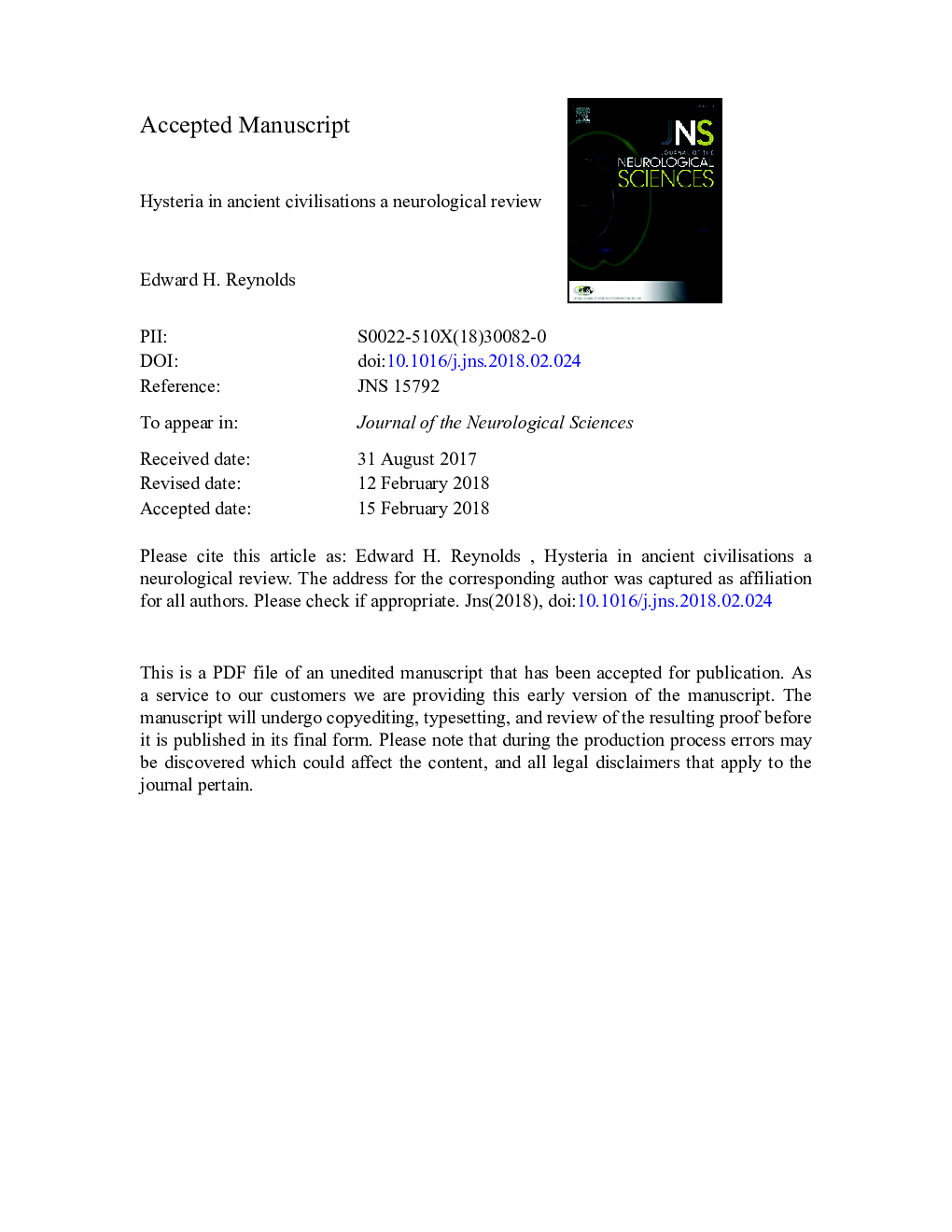| کد مقاله | کد نشریه | سال انتشار | مقاله انگلیسی | نسخه تمام متن |
|---|---|---|---|---|
| 8272525 | 1535073 | 2018 | 22 صفحه PDF | دانلود رایگان |
عنوان انگلیسی مقاله ISI
Hysteria in ancient civilisations: A neurological review
ترجمه فارسی عنوان
هیستری در تمدن های باستانی: بررسی نورولوژیکی
دانلود مقاله + سفارش ترجمه
دانلود مقاله ISI انگلیسی
رایگان برای ایرانیان
کلمات کلیدی
هیستریا، بابل، آشور مصر، یونان، رم،
موضوعات مرتبط
علوم زیستی و بیوفناوری
بیوشیمی، ژنتیک و زیست شناسی مولکولی
سالمندی
چکیده انگلیسی
The Babylonians, Assyrians and Egyptians had no knowledge of brain or psychological function. Babylonian and Assyrian descriptions of disease and behaviour include only rare examples suggestive of modern hysteria. An earlier suggestion that the Greek concept of hysteria was transmitted from Egypt is not supported by recent evidence. The Greco-Roman civilisations had some knowledge of neuroanatomy, but little of nervous system function, conceived in terms of humors. The examples cited here suggestive of modern hysteria are relatively infrequent and fragmentary. The most plausible are attempts to separate the “sacred disease” from other causes of loss of consciousness. The great achievement of Greco-Roman medicine was in introducing natural causation, including causation linked to the womb, rather than gods or evil spirits. Nevertheless medicine, magic and religion have remained intertwined to varying degrees in all cultures up to the present time, despite the growth of modern scientific medicine. The study of hysteria in ancient civilisations adds interesting insight into the evolution of thinking about brain, psyche, mind and self. Babylonian and Egyptian medical and behavioural descriptions are based on observation. Greek and Roman accounts include some subjective aspects, probably linked to early attempts to understand identity, the psyche, intellectual and emotional functions. The great philosophical debate whether the latter resided in the head/brain (Plato) or the heart (Aristotle) has only been settled in the last few centuries, during which hysteria also became linked to brainâ¯Â±â¯mind. Our more recent increasing knowledge of brain function has also been accompanied by increasing interest in subjective feelings, thoughts, the inner life and subconscious mechanisms, suggesting we may have become more self-aware than in earlier civilisations, which in turn may perhaps influence the clinical presentation of hysteria. The study of hysteria may be one of the keys to a greater understanding of the relationship between brain and mind.
ناشر
Database: Elsevier - ScienceDirect (ساینس دایرکت)
Journal: Journal of the Neurological Sciences - Volume 388, 15 May 2018, Pages 208-213
Journal: Journal of the Neurological Sciences - Volume 388, 15 May 2018, Pages 208-213
نویسندگان
Edward H. Reynolds,
